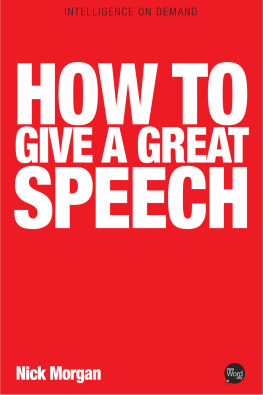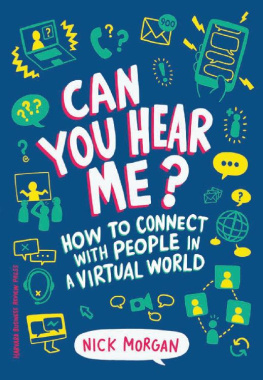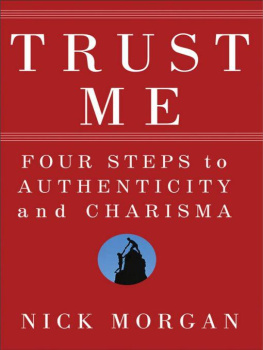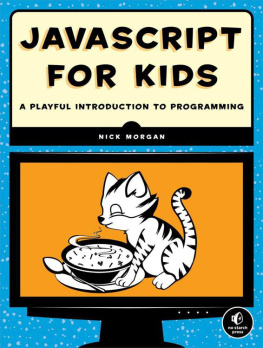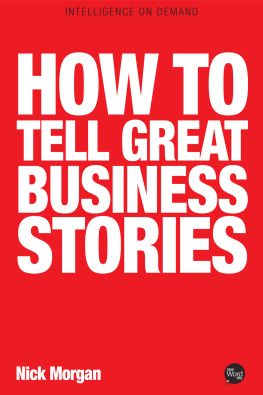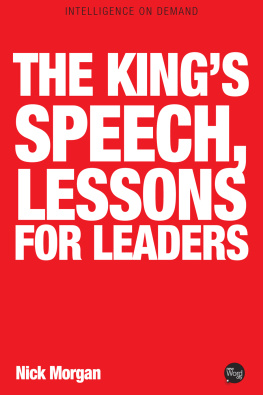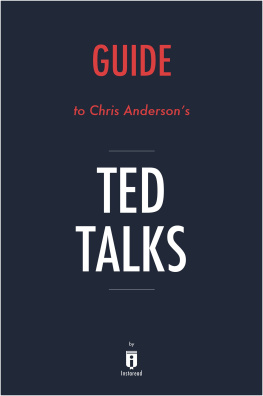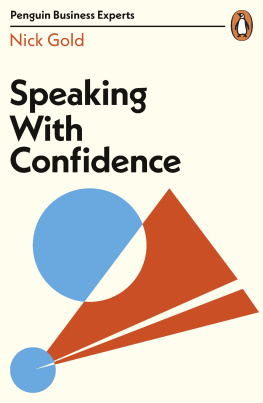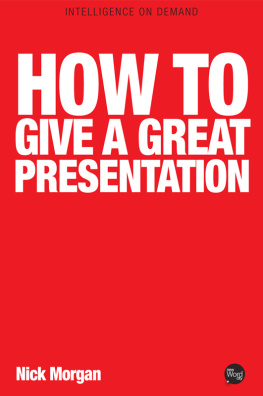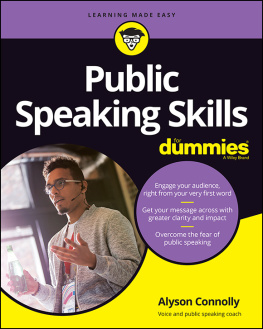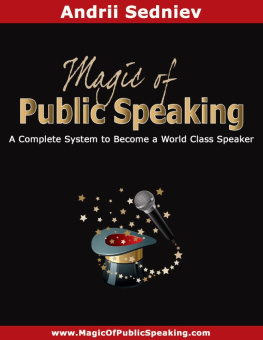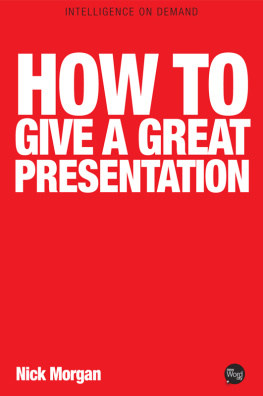Nick Morgan - How to Give a Great Speech
Here you can read online Nick Morgan - How to Give a Great Speech full text of the book (entire story) in english for free. Download pdf and epub, get meaning, cover and reviews about this ebook. year: 2014, publisher: New Word City, genre: Home and family. Description of the work, (preface) as well as reviews are available. Best literature library LitArk.com created for fans of good reading and offers a wide selection of genres:
Romance novel
Science fiction
Adventure
Detective
Science
History
Home and family
Prose
Art
Politics
Computer
Non-fiction
Religion
Business
Children
Humor
Choose a favorite category and find really read worthwhile books. Enjoy immersion in the world of imagination, feel the emotions of the characters or learn something new for yourself, make an fascinating discovery.
- Book:How to Give a Great Speech
- Author:
- Publisher:New Word City
- Genre:
- Year:2014
- Rating:5 / 5
- Favourites:Add to favourites
- Your mark:
- 100
- 1
- 2
- 3
- 4
- 5
How to Give a Great Speech: summary, description and annotation
We offer to read an annotation, description, summary or preface (depends on what the author of the book "How to Give a Great Speech" wrote himself). If you haven't found the necessary information about the book — write in the comments, we will try to find it.
Public speaking is both art and science, idea and fulfillment, content and delivery, and studies show its one of the most terrifying tasks people face. Here, in this short-form book, are seven steps to take some of the anxiety out of the process of preparing and delivering a great speech. With these steps, you may even win that price secretly coveted by all speakers: a standing ovation.
How to Give a Great Speech — read online for free the complete book (whole text) full work
Below is the text of the book, divided by pages. System saving the place of the last page read, allows you to conveniently read the book "How to Give a Great Speech" online for free, without having to search again every time where you left off. Put a bookmark, and you can go to the page where you finished reading at any time.
Font size:
Interval:
Bookmark:
The only reason to give a speech is to change the world. Then member of Parliament Winston Churchill turned the British away from appeasement with a speech in 1940 in the House of Commons. President John F. Kennedy started the Peace Corps and turned a generation toward public service with his inaugural address. The Reverend Martin Luther King, Jr. shared his dream of racial equality with 300,000 listeners on the Washington Mall and brought civil rights to life for all Americans. The speech youre going to give will change the world just as surely, because it will change the way your audience thinks about something. Youre in good company. So lets change the world.
Not so fast.
Public speaking is both an art and a science. It requires delivery in front of a live audience a written speech is only half the fun. The whole process makes most people anxious; of all the tasks we face this is the one that studies regularly show we fear most. Here are seven steps to take some of the sting out of the process of preparing and delivering a great speech.
Chapter 1
Ask yourself, what do I want my audience to do differently after hearing my speech? Write the answer in one sentence.
Whats the change you want to see in your audience as you deliver the closing words of your presentation? Formulate this idea in one sentence, which should look something like this:
When youve heard my speech, you will believe that the United Kingdom can and indeed must resist the apparently invincible German war machine and fight to the end, so that our country will survive.
You is the audience, and the change is phrased as a benefit to that audience. People come to speeches asking why? why should I care, why should I pay attention, why should I make this my own? If you succeed, you will take them on a journey from why to how how do I get started, how do I make this my own, how do I use this in my life?
So you need to get clear about what that benefit to the audience is, that change that youre offering them. Once you know it, youre well-launched toward success. Youre ready to start gathering the information you need for the speech.
Now use the sentence youve created as a way to test that information. When youre preparing a speech, the urge is to collect everything you and everyone else knows about the topic. The problem with that is that you wont have enough time to deliver it. By far the most common mistake of inexperienced speakers is to significantly exceed the time allotted. No one ever thanks a speaker for running long, and no one ever complains about a speech that runs short. So test your material against that sentence you wrote. If it doesnt directly relate, it shouldnt be in the speech.
Next, think about the journey on which youre going to take the audience. Its a trip from why to how, but its also a journey from Point A to Point B the state of unfamiliarity with your ideas at the beginning to a changed, fired-up, and ready-to-go mindset at the end.
You want to start from the end. If Point B is the destination, what do you have to say to them before that will get them there?
Heres where you have to start thinking really hard about your audience. You need to get to know them better than they know themselves. Start with the obvious demographic questions age, class, education then go deeper. What are their hopes and dreams? What are they afraid of? Whats on their minds right now? If you understand their mental clutter youll be better able to cut through it. For instance, Martin Luther King, Jr. understood well the frustration of his audience with the indignities of segregation and the desire of listeners to surmount those barriers and achieve real equality. The power of his speeches came from his ability to speak directly to those dreams.
Once you know your audience extremely well, test your topic idea that one sentence against your new knowledge. Is your topic something the audience is likely to care about? How much have they heard about the subject already? You dont want to be the second speaker in a row to talk about your ascent of Mount Everest.
If your topic idea stands up against your knowledge of the audience, youre ready for step two.
Chapter 2
Ask yourself, what is the problem the audience has for which my information is the solution? Then find the answer.
You have two jobs to do to win over any audience: Establish credibility and build trust. You establish credibility with an audience by talking about a problem that the audience has and showing that you truly understand it. You build trust by solving that problem.
For example, if youve got, say, a five-step process guaranteed to achieve spectacular sales results, dont start by telling them about your five-step process. Begin by talking about how hard it is to achieve sales goals year after year. Then describe what that tough world of sales today looks like. Reveal statistics carefully about sales that the audience hasnt heard before. Show yourself to be, in short, the go-to expert on sales.
The good news is that it doesnt take much to establish expertise in a speech. People dont remember much of what theyve heard research shows its something between 10 and 30 percent and they tend to take a few statistics as a sign of deep knowledge, because they assume you know much more than youre telling them.
So establish your expertise with a light touch. Keep the numbers and the insider knowledge to a minimum, but do reveal a little. Youre establishing your credibility, so do the research and compile the data. Then use it sparingly. Audiences find lists irritating, but they love attitude and perspective. They love hearing about the telling detail that makes them sit up and take notice.
You want to begin your speech with one of those amazing statistics or facts that youve unearthed, or better yet a brief story one to three minutes, max that encapsulates the difficulties of sales (well stick with that as our example for the moment) today and perhaps even hints at your expertise. In my travels as the roving ambassador for the United Nations, I had the good fortune to run across many unusual people. But the most unusual person I ever met was.... Or you can involve the audience by asking them to share their experiences in some quick, easy way. How many of you have ever found yourself wanting to throttle a perspective customer who wouldnt make up his mind? Ah, you, in the back can you share your story?
Once youve framed the problem, and the speech, with that fascinating statistic, fact, or anecdote, or that quick Q&A with the audience, jump deep into the problem, using more stories, statistics, and facts to make your case. In a 45-minute speech, a full 15 to 20 minutes can be spent on the problem.
If that seems like a long time before you get to your solution, think of it this way: A speech is not a data dump. Its a decision-making journey on which you take your audience. Your goal, after all, is to change peoples minds about something, and change the world by moving them to contemplate a new action, based on the new perspective youve given them.
Decision-making takes place in some clearly defined steps, and it takes a little time. You have to allow the audience that time as you take them through the steps of changing their minds.
So thats the process so far: framing story, problem, solution. Now for step (and chapter) number three.
Chapter 3
Decide upon some easy-to-accomplish action you want the audience to take at the end of your speech.
The best speeches involve audiences from the start. But if you havent involved them yet, you need to understand that youve asked them to be passive for some 45 minutes, and people are, by and large, paid to be active. Sitting and watching a speech is not an activity that theyre happy with forever.
Font size:
Interval:
Bookmark:
Similar books «How to Give a Great Speech»
Look at similar books to How to Give a Great Speech. We have selected literature similar in name and meaning in the hope of providing readers with more options to find new, interesting, not yet read works.
Discussion, reviews of the book How to Give a Great Speech and just readers' own opinions. Leave your comments, write what you think about the work, its meaning or the main characters. Specify what exactly you liked and what you didn't like, and why you think so.

